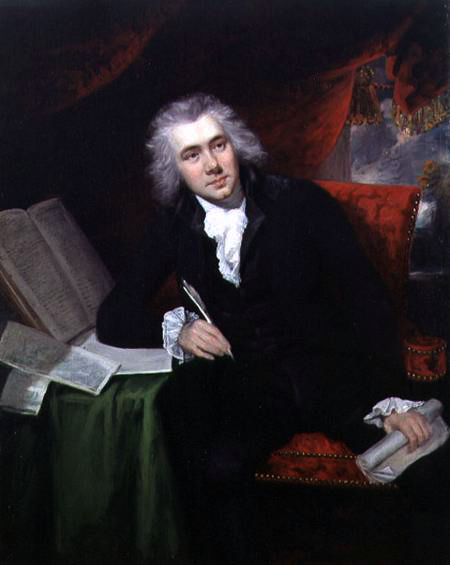The bucket list is a relatively recent concept, being invented by screenwriter Justin Zackham – first with “Justin’s List of Things to Do Before I Kick the Bucket” (1999), and subsequently with the film The Bucket List (2007). But the idea of having goals you want to achieve before you die – well, that has a longer history.
Consider William Wilberforce, for example. In 1787, at the age of about 28, he wrote in his journal that, “God Almighty has set before me two great objects: the suppression of the slave trade and the reformation of manners.” (By “manners” he didn’t mean etiquette, but rather the manner of living practiced by society at large – what we might call lifestyle or culture.)
None of this “I want to do a bungee jump, and skydive, and go snorkelling in a tropical resort” stuff for Wilberforce. No, he cut straight to the big stuff: destroy the unethical underpinnings of the global economy, and reform the whole culture he lived in. And having fixed his sights on those goals, he threw everything he had at them.
In pursuit of goal #2, he founded the Society for the Prevention of Cruelty to Animals – subsequently the RSPCA, with daughter societies all over the world – as well as what is now the Royal National Lifeboat Institution. He also supported measures against illegal gambling, false advertising, pornography, and “procuring” (which included pimping and sex trafficking).
In addition, he promoted better working conditions for some of Britain’s most vulnerable workers, supported education for the working classes (an unpopular and radical policy in his time), campaigned for the restriction of capital punishment, and for the reform of both Parliament and prisons.
Being well off, he could and did support his many charitable interests with his own wealth – helping people get free of life-defining debt, for example. (In one year of widespread hunger and food shortages, he donated more to charity than his entire income.) His employees who were past working were kept on regardless – a sort of in-house retirement home – and he modelled hands-on parenthood, being more involved with his six children’s lives than was usual for a gentleman of his time, and even (shock, horror) playing with them.
His working life in Parliament was devoted to the reaching of Goal #1: the suppression of the selling and buying of human beings. This was reached in 1807, when Wilberforce was in his late forties. But though buying and selling was now illegal, owning was still permitted. Changing this was what you might call Wilberforce’s Goal #1b.
But the fight was a long one, and Wilberforce was getting older. He resigned his seat in Parliament on the grounds of health in his mid-sixties, though he continued to advocate for the abolition of slavery. On the 26th of July 1833, he heard that the Bill for the Abolition of Slavery was finally set to be passed into law. Three days later, he died, aged 73. Bucket list crossed off, bucket kicked.
OK, maybe you don’t have Wilberforce’s financial resources, but you probably don’t have his stress-induced ulcerative colitis either (or the resulting opiate dependency). Maybe God Almighty has set before you a great object or two. Maybe you’ll change the world. Maybe you’ll make history. Or maybe you’ll be one of those who makes a difference without ever making the headlines. But either way, you’ve got better things to put on your bucket list than a catalogue of tourist experiences. Dream big. Aim high. And persevere. The list isn’t over till the bucket has been kicked.



Great post, Deborah! Very inspiring – the man and the post. Making a difference this week consisted of making life a little easier for various neighbours by providing water, and the occasional cuppa, as we worked our way through 3 days (so far) of intermittent water outages. Not world changing, but everyone needs water, right? Having our big water tank made a big difference, thanks to those who gave it to us 🙂
Water is indeed a universal need. I’ve heard it suggested that wars over oil will give way to wars over water – not much of an improvement.
I feel much relieved that I no longer need to consider bungee jumping.
I don’t have a bucket list, just a few notes jotted down on various bits of paper about projects I could do, mostly writing. Those aren’t big, compared with Wilberforce. But I do try to respond to the ordinary needs of others in my everyday circle. This reminds me of a poster at a former workplace:
‘The public doesn’t interrupt our business; the public IS our business.’
I also am relieved that you are no longer considering bungee jumping!